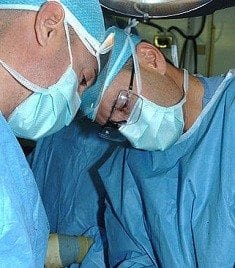
Stillman and Friedland are committed to keeping our clients up-to-date on the latest trends in health.
In this post, we will discuss an area of concern for clients who have suffered an accident requiring hospitalization.
The following clip is from a Consumer Reports advisory article and provides essential patient safety information. Following these guidelines can help you avoid exposure to a potentially deadly infection during a hospital stay:
A bacterial infection which is on the rise in hospital settings is Clostridium difficile, popularly known as “C. diff”. Data for the number of cases diagnosed annually is limited, but estimates range from over 100,000 cases per year in hospital alone, and up to nearly 500,000 overall, with C. diff deaths calculated at around 29,000 per year.
More worrying is that of 3,200 hospitals surveyed, nearly one-third are failing in their implementation of procedures which would protect patients from exposure to this bacterium. This includes a number of the largest teaching hospitals in the country. If you want to avoid C. diff, act within your rights as a patient and insist that every caregiver you come in contact with wash his or her hands before touching you.
Evidence indicates that patients are vulnerable to C. diff because they are routinely dosed with antibiotics which destroy the patient’s own gut bacteria, leaving an empty playing field for C. diff. As we have discussed previously, your own gut bacteria represent an active line of defense against the invasion of harmful bacteria or the overgrowth of particular bacteria. When certain bacteria dominate your “zoo” of bacteria, they can wreak havoc.
According to WebMD those most vulnerable are patients with problems “that require long-term treatment with antibiotics, which kill off other intestinal bacteria that keep C. diff in check. While use of any antibiotic can potentially lead to C. diff overgrowth, it most commonly occurs with the use of an antibiotic that is broad-spectrum, or able to kill a wide variety of bacteria. It also happens more often when multiple antibiotics are needed to fight infection…”
If you have suffered injuries from a car or truck accident you are especially vulnerable to contracting C. diff if you have been hospitalized for your injuries and have trauma and surgical wounds. The longer you are in hospital and taking antibiotics, the greater your risk of exposure. We urge our clients to discuss this risk with their treating physician and to advocate for proper hygienic procedure in order to prevent exposure.
As always, call anytime, we are here to serve you.
Because we care…
Stillman & Friedland






